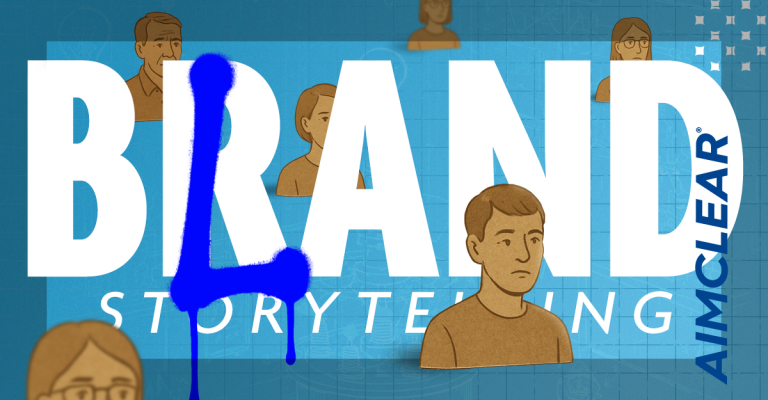
photo credit: eyesplash Mikul
What online venues do your customers flock to when they’re not searching Google or visiting your website? They could be talking about your brand – good or bad – at this very moment, in an online venue seen by thousands or even millions of users.
While it’s no secret how prominent social platforms such as Twitter, Facebook and YouTube are, the ability to generate buzz and establish productive relationships with customers online is certainly not as clear.
Search Engine Strategies San Jose kicked off Day Two with the session: Igniting Viral Campaigns: Leveraging Consumer-Generated Content.
Moderated by Aaron Kahlow, Chairman & Founder of Online Marketing Summit this session looked to provide answers to some of these questions and insight into what enabled companies to stand out and be talked about.
Bill Leake, President and CEO of Apogee Search
- Bill believes that at a high level, there is a philosophical gap between spending money to drive people to content (via paid media) versus gaining audience via news, press and mentions (earned media).
- Search is great at dealing with “NEED” but there is a struggle to associate search with “TRUST”. The problem is that media that offers trust has difficulties associated that with the appropriate need.
Bill showed a case study on Office Depot. The company chose to add consumer generated reviews on the site. The results:
- Increased CTR 78%
- Revenue by 196.6%
- New Buyers by 183%
Credibility and trust for organizations are earned through positive reviews not marketing statements. You need to be out in the community seeding conversations and gaining visibility to build your presence.
Viral marketing takes a long time to take off, but when it does: it takes off very quickly.
Greg Finn, Director of Internet Marketing, 10e20 decided to show more tactical tips and tricks for his presentation [here’s a recap of the key information from the presentation]
- Content must have a purpose
- Identify viral content – humor, educational resources, comprehensive lists, breaking information
- Tips:
- Make sure there is proper formatting
- Make sure content is easy to consume
- Be visual
- Look for social tone (not too corporate or marketing style)
- Greg is a fan of social news – sites like Digg, Reddit and Propeller – used to generate links and traffic. The key is to be as non-corporate as possible and you need to [actively] participate before expecting results
Social bookmarking misconceptions
- Digg – it’s not just video games and gadgets, there are now categories such as travel, food, and even pets & animals
- StumbleUpon – available for any viral campaign. There are lots of categories to choose from but be careful choosing the most appropriate ones
- Reddit – now offer “subreddits” (sub-categories of the site) for the best visibility. Instead of competing with the the broader audience, subreddits offer a more specific niche with less competition for visibility
Social networking tips and advice:
- Corporate & brand promotion is not the only angle
- Helping the community is better than helping yourself
- Greg showed a Facebook fan page that inspire emotion instead of just company information (Laughing Fan Page)
Tips and advice for twitter
- Make it easy to tweet content
- Allow for easy retweets
- Promote information during peak hours
- Reach out to bloggers and online forums (entice others to ignite your campaigns)
Be careful and strategic with execution
- Stagger approaches for optimal visibility
- Provide alternative ways to share on social networks
- Cross promote to maximize exposure
- Leverage viral mentions to continue momentum (repeat underperforming campaigns with the coverage content)
Matthew Liu, Product Manager for YouTube Sponsored Videos offered a presentation specifically on viral video [with YouTube].
- Sometimes viral video “just happens” but it certainly is not the norm (Example: David After Dentist was probably not an intended to go viral)
- Use Guerrilla Marketing – subtle branding and stealth marketing and see to news sites, blogs, Twitter and Facebook to fan the flames
- Use Explicit Marketing – communicate directly to the YouTube community and engage in dialogue via comments, responses and subscriptions
- If all else fails, consider paid marketing – YouTube “Promoted Videos” and advertising services (GEICO and OfficeMax have used paid advertising campaigns to ignite viral success).
Video Optimization Best Practices
- Use an accurate and descriptive title
- Provide a detailed description with complete sentences
- Include descriptive keyword tags but avoid keyword stuffing
- Share videos with member of the community and experiment with annotations, video responses and thumbnails
- Embed videos on other websites
- Matt points out that YouTube looks at keyword stuffing and spam tactics (to artificially inflate views) and will penalize video content if it is found
- Matt points out that YouTube Insight offers analytics and reports on video, including hotspots (where in the video users are viewing most)
- Finally, there is a PPC program (Paid Discovery) for advertising and promoting video content
Barbara Coll, CEO of WebMama.com Inc.
Barbara provided two examples of user generated content. Her key question: “Did you ask for consumer engagement?” – you have to have content and be able to ask for engagement.
Example: Yosemite Rose Cottage B&B
- They gained Trip Advisor reviews and even though users might not read them, search engines will.
- Barbara cautions to be careful and monitor reviews for negativity. React quickly to address these issues because Google indexes reviews even faster than before.
- The B&B also posted videos on YouTube as well.
Barbara’s comment: You have to constantly feed the “search beasts“; ask the community (your community) to get involved.
Example: VMWare
VMWare provided the community with the opportunity to get engaged, spread the word and suggest an action.
- VMWare engaged users in various communities (branded and third party sites). The key was being very active and responding to users. Even though a thread may only get 2 or 3 replies, there might be thousands of views [that means that many others are curious about the issue or want to see VMWare’s response]
- VMWare uses Twitter to engage the community. Product managers contribute to the feed and the Twitter profile points to the comprehensive list of VMWare blogs.
- For VMWare blogs: the organization not only showcases VMWare-specific blogs but also employee blogs outside of the organization. There were dozens of employee and organizational blogs
- Finally, WMWare mapped out all of their social media activities on one main landing page. While they are not active in every community, they’ve taken the time to establish presence in them regardless.
Brian Ellefritz, Senior Manager, Social Media Marketing at Cisco Systems
Brian showcases a viral marketing success story. One of the Cisco divisions would be at a major event (CES 2009) and had the desire to gain increased visibility. Unfortunately, all they had at the time was an [expensive] video and no plan.
The solution: with limited budget, they created a contest “Heaven or Hell” which enabled users to submit 3 minute videos offering a $10,000 prize for the two best submissions (one for Heaven and one for Hell).
[kml_flashembed movie="https://www.youtube.com/v/LygdC0moETo" width="425" height="344" wmode="transparent" /]
The winners:
- Ryan – Rich guy from the US – 4 stars, 6,700 views and 100 comments [Heaven]
- Angpao – Poor guy from the Phillipines – 4 stars, 17,000 views and 1200 comments [Hell]
For Cisco, the entire campaign generated 50+ video submissions, 60,000+ views and over 15,000 comments. In Cisco’s mind, the real win was that they received lots of submissions [they were afraid they might not receive any]
Brian’s tips and best practices when creating a contest intended to go viral
- Don’t scrimp on incentives
- Consumers should share and promote their own videos to get views/rating
- Cisco used an integrated promotion including paid search, banners, email and blogger outreach to gain visibility
- Cisco also specifically reached out through YouTube contacting prior contest winners and video creators in hopes they would be interested in their contest
Derek Edmond is a Managing Partner at KoMarketing Associates, providing B2B search engine marketing for technology, industrial and professional services providers.









